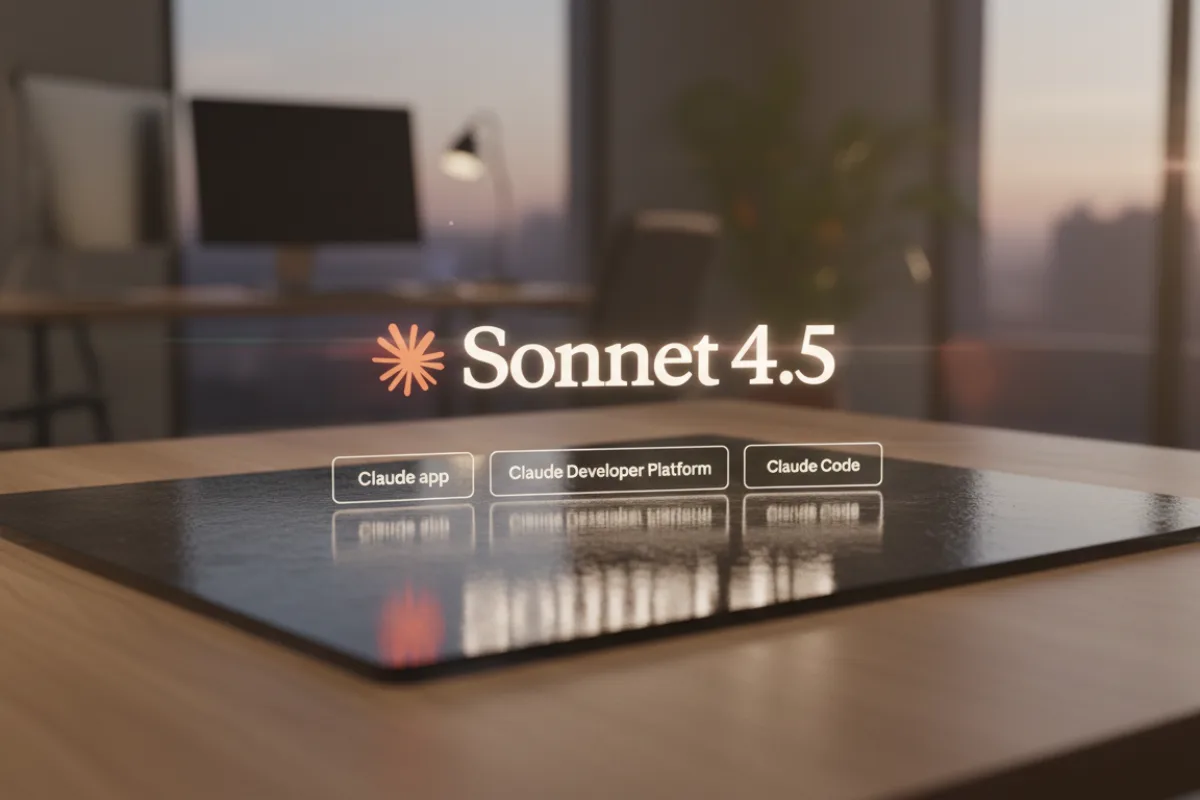Introduction
Anthropic this week unveiled Claude Sonnet 4.5, a major update the company says is far better at extended coding tasks and agentic work — what some journalists are calling “vibe-coding.”
Early tests and company demos show Sonnet 4.5 can work autonomously for many hours on complex projects, reducing repetitive developer work while raising fresh questions about accuracy and workflow changes.
[related url=”https://tekznology.com/elon-musk-unveils-grokipedia-xais-bid-to-build/”]
What Sonnet 4.5 does

Sonnet 4.5 improves code generation, long-context reasoning and self-testing. Anthropic says the model handled weeks-long engineering tasks in internal trials — running for 30+ hours during prelaunch tests — and shows stronger code-editing accuracy than previous releases. That makes it useful for large refactors, automated tests and multi-step automation.
[related url=”https://tekznology.com/samsungs-galaxy-z-tri-fold-phone-nears-debut/”]
Why people call it “vibe-coding”
Journalists use “vibe-coding” to describe how developers rely on AI agents to take the first pass at code, then refine it. Tools like Sonnet 4.5 can run multiple commands, spin up tests, and patch bugs; this feels like the model “getting into the vibe” of a codebase. Proponents say it speeds delivery; skeptics warn about silent errors and over-reliance.
[related url=”https://tekznology.com/qualcomms-snapdragon-8-elite-gen-5-new-chip/”]
Practical benefits and caveats

For teams, the upside is clear: faster prototyping, fewer boilerplate tasks, and better automated tests. Anthropic claims measurable gains in developer productivity in pilot programs. But experts urge careful human review — AI can generate plausible but incorrect code, so checks and test automation remain essential. Companies should treat Sonnet 4.5 as an assistant, not an unchecked author.
What to watch
- Adoption: Which firms will pilot Sonnet 4.5 in production? Big cloud customers and dev tool vendors will lead.
- Policy and jobs: Expect new internal guardrails and role shifts — more reviewers, fewer repetitive tasks.
- Security: Autonomous agents raise new attack surfaces; red-teaming and verification tools will be crucial.
Author note: I checked Anthropic’s announcement and independent reporting to balance capability claims with realistic caveats. This piece focuses on practical benefits and the oversight needed.

